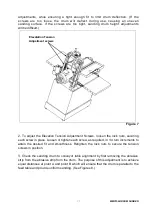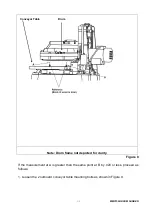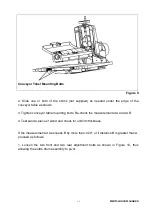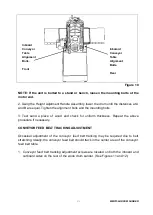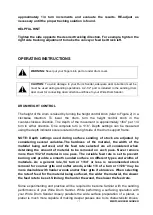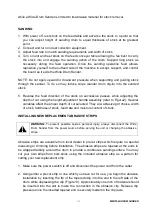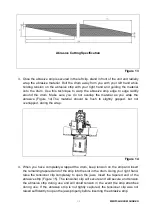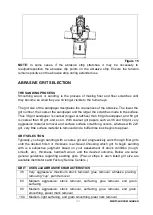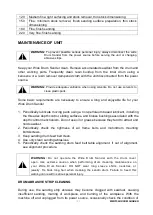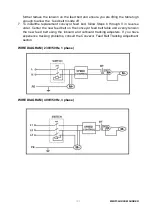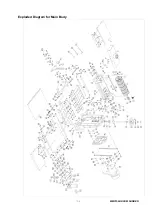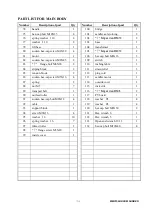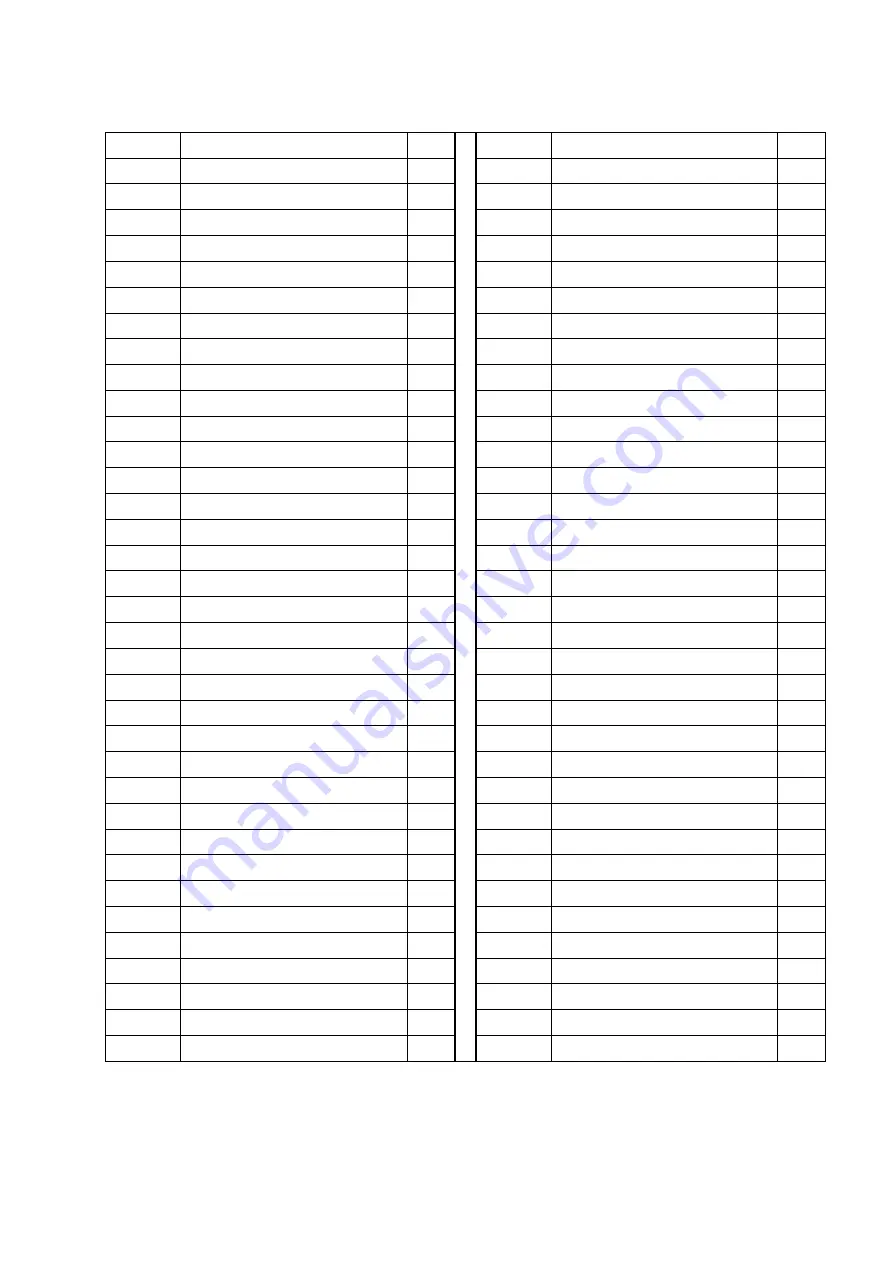
MM3156A DRUM SANDER
26
PART LIST FOR MAIN BODY
Number
Description of part
Qty
Number
Description of part
Qty
74
handle
1
100
bridge
1
75
hex-cap bolt M10X35
4
101
samller axle joining
2
76
spring washer
∮
10
4
102
"
十
" flange screw M5X10
2
77
washer
∮
10
8
103
base
1
78
lift base
1
104
transformer
1
80
sucken hex-cap screw M8X30
4
105
"
十
" flange screw M4X10
2
81
motor
1
106
hex cap bolt M6X16
3
82
sucken hex-cap screw M8X45
2
109
switch
1
83
"
十
" flange bolt M6X90
2
110
inching lable
1
84
sliping block
2
111
strain relief
3
85
tension block
2
112
plug cord
1
86
sucken hex-cap screw M5X16
4
113
samller motor
1
87
spring
2
114
outside cover
1
88
nut M5
7
115
dielectric
1
89
transport belt
1
116
"
十
" flange screw M5X6
2
90
outfeed roller
1
117
PV board
1
91
sucken hex-cap bolt M8X12
4
118
washer
∮
8
4
92
table
1
119
washer
∮
8
4
93
support block
1
120
hex cap bolt M8X30
2
94
screw M6X16
4
121
Hex wrench 6
1
95
washer
∮
6
10
122
Hex wrench 5
1
96
spring washer
∮
6
7
123
Open end wrench 11/13
1
97
infeed roller
1
132
hex-cap bolt M10X40
4
98
"
十
" flange screw M5X20
1
99
inside cover
1

